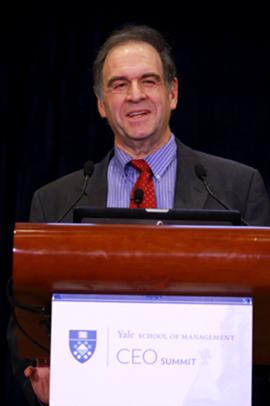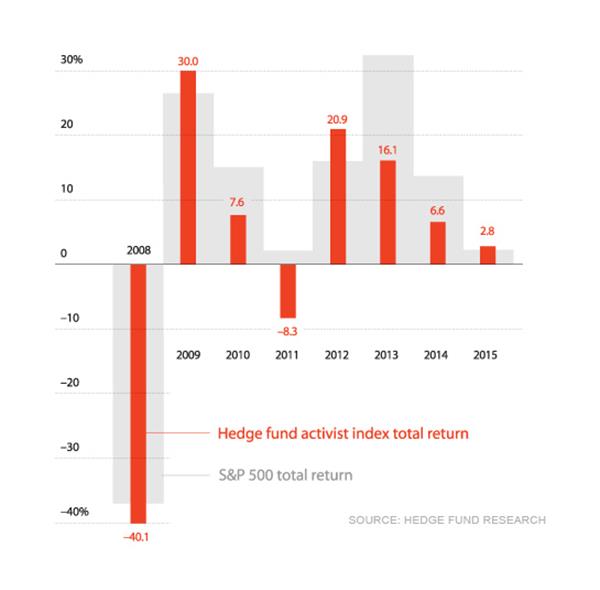
Finance
Activist
Investors
Actively mediocre
by Anne
VanderMey
April 21, 2015, 9:18 AM EDT
|
|

Courtesy of Jeff Sonnenfeld
|
Activist investors scold CEOs over stock
prices, but their own returns are just so-so.
There’s no question that activist investors are ascendant.
Increasingly a force in even the most elite boardrooms, these
shareholder standard-bearers agitate for change, aiming to boost the
profit and stocks of their target companies. And most often, they’re
hedge fund managers who, in the process, charge their clients gaudy
fees (typically 2% per year plus 20% of any gains).
But how are the returns of the activists’ own funds? Taken as a whole
over the past seven years … not all that great.
According to data compiled by research firm HFR, activists beat the
S&P only three years out of the past eight, including by a narrow
margin so far in 2015. “They can dish it out, but they can’t take it,”
says Yale School of Management professor Jeffrey Sonnenfeld, who for
years has been sounding the alarm about funds he thinks squeeze
companies for short-term gains. If you invested in the average
activist hedge fund at the start of 2008, your cumulative return today
would be 19% after fees, according to HFR; for the S&P 500, with
dividends, it would be 65%.
Hedge fund defenders say it’s unfair to look at such a short time
frame (2008 was the first year HFR tracked activist performance on its
own). Plus, HFR’s index looks at a universe of more than 70 firms, not
all of them stars. The average obscures performances like that of
Sonnenfeld critic Nelson Peltz, who says the flagship fund of his
Trian Fund Management has notched a 137% return after fees since its
2005 inception. (The comparable figure for the S&P would be just over
100%.)
Should CEOs follow the activists? That’s a tricky call. For average
investors (most of whom couldn’t get access anyway), the answer is a
lot easier: Stick with an index fund.
This story is from the May 1, 2015 issue of Fortune magazine.. |


